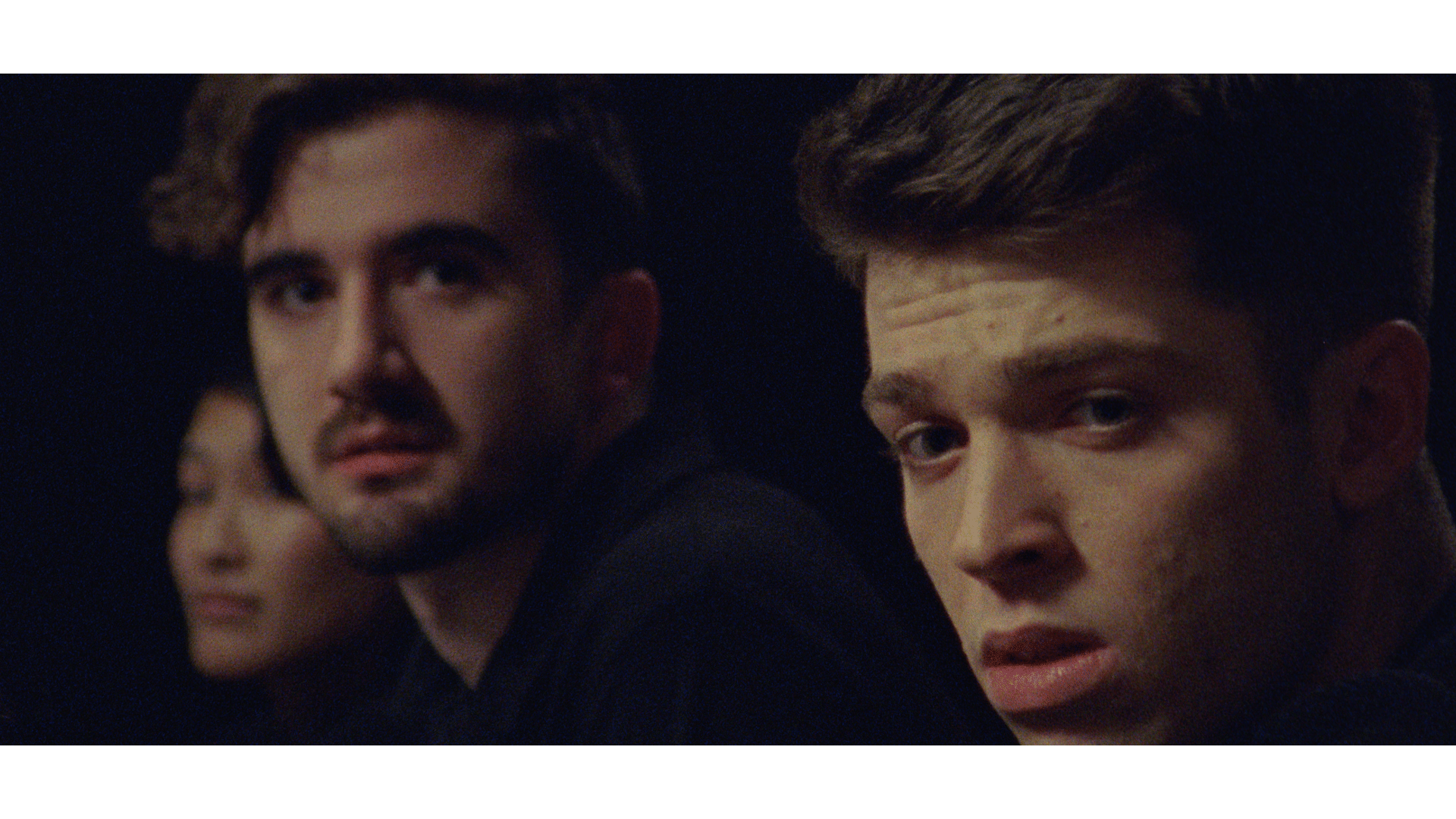Want to hear more from the actors and creators of your favorite shows and films? Subscribe to The Cinema Spot on YouTube for all of our upcoming interviews!
Managing editor & film and television critic with a Bachelor's of Arts in English Literature with a Writing Minor from the University of Guam. Currently in graduate school completing a Master's in English Literature.
As one of the rather trickier short films for me to review, Play It Safe is startling. Written, directed, and edited by Mitch Kalisa, this dramatic narrative focuses on choices made in playing certain racial stereotypes.
Plot Summary
Set in a middle-class London drama school, the synopsis is as follows:
Coaxed into playing a racial typecast in a fellow student’s play, Black drama student Jonathan is faced with the all-too-familiar decision: to challenge prejudice, or play it safe.
Jonathan (Jonathan Ajayi) is the protagonist who is subjected to a few racial predicaments with the pressures of his peers. Through non-white characters such as him, we learn that it may be difficult — more so uncomfortable — being placed in unsafe spaces.
Discussion
Kalisa did a great job in calling these matters up to the forefront. Indeed, his story shows that society still has a long way to go in completely tackling down the harsh racism around us. Classmates Henry (Louis Richards) and Christian (Charlie O’Connor) invite Jonathan to a little event that involves smoking weed and hooking him up with a girl. They later give him a screenplay titled “Ghetto Gospel” featuring the main thug role of “Tyrone” fit for an actor such as him. Lastly, Jonathan picks a card out of a hat and must put on the guise of the animal presented on the card. The only major issue here is his card has a picture of a primate on it.
From the start, the drama class instructor tells the students, “Don’t be afraid. Take up more space.” This is something that many actors must learn in order to amplify their performances. Additionally, the instructor says, “I want commitment. I want focus. I want a decision. Where are you? Are you predator; are you prey? Remember: don’t play it safe.”
One lesson to gain from here is that there is a line between what is and isn’t safe. I would argue that one theme present in the film is liminality. By taking up more of these spaces, Jonathan is able to cross the reputed line. In his mind before performing the role of the primate, he may be oscillating between the dualities. White and black, predator and prey, human and animal, safe and in danger. Ultimately, Jonathan breaks limitations and ends up on one side, but what role he plays is up for interpretation.
Concluding Statements
Some concerns I have with the film obviously have to do with the others’ choices. Jonathan does not need to be cast in certain roles, especially those that might take advantage of his race and color. This isn’t something that the entertainment industry should promote. It seems easy to place Black people and Persons of Color in the racial roles they’re given rather than have them play roles normally meant for white people. Another concern is why keep the Ape card an option for students? Leaving it in the deck to be picked out of the hat will inevitably subject any student to sizeable racism. On the other hand, excluding it would remove any stigma for all students and can avoid awkward situations.
The way this short film plays out reminds me of Spike Lee’s Bamboozled. In his film, Black men put on Black face for the intended amusement of the television audience. What Jonathan does is not necessarily embracing the role but rather enforcing it to such a point that it shocks his peers. Overall, this story addresses certain elephant(s) in the room. Additionally, I very much liked the camera work and the acting on Ajayi’s part. Play It Safe teaches us to do anything but that.
For more drama and short film-related news and reviews, follow The Cinema Spot on Twitter (@TheCinemaSpot) and Instagram (@thecinemaspot_). Also, you can now find us on Facebook (TheCinemaSpotFB)!
Managing editor & film and television critic with a Bachelor's of Arts in English Literature with a Writing Minor from the University of Guam. Currently in graduate school completing a Master's in English Literature.







